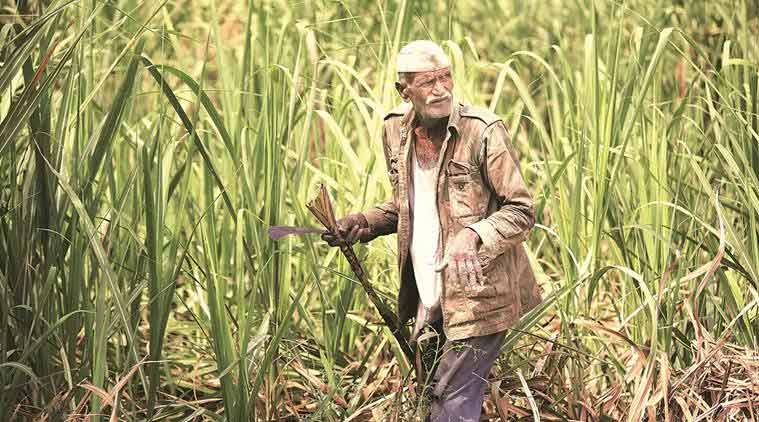Sugarcane mills in India have had a long history from before Independence. For the industrialists in certain parts of North India where trading or manufacturing did not have a strong base in late 19th and early 20th century, setting up a sugar mill was the most profitable business. Patrons of industrial families like the Sahu-Jain family of Times group were sugar mill owners in the early 20th century. Sugarcane is a major crop in India with production touching 30 million tonnes by March 2018. The country is the largest producer of sugarcane after Brazil which produces more than double of India’s output due to its sheer landmass and better techniques.
The sugarcane industry is in distress over the past few years due to overproduction which resulted in a fall in prices. Sugarcane farmers, being more organized and financially more powerful than ordinary farmers, were pressuring the government to take measures to support them. The problems of sugarcane farmers were once again highlighted when they protested before the Kairana bypolls. BJP lost the Kairana bypolls in which farmer’s discontent played a role, because a majority of the people in the district are farmers and sugarcane is a major crop in the area.
The Government has announced a Rs 8000 Crore bailout package to cash-starved sugar mills which were unable to pay farmers due to record production and a subsequent sharp fall in sugar prices in the year of 2017-18. The bailout package includes a three step measure to support the farmers, the first being the creation of buffer stock of 30 LMT (lakh metric tonnes) of sugar worth Rs 1,200 crore for which the money will be directly transferred to the farmers’ accounts. The second step is to use Rs 4,400 crore to increase ethanol production to divert sugarcane away from sugar mills which are unable to dispose of their inventories. The third step of the bailout package is that the government has decided to ensure minimum selling price of sugar to remain at Rs 29/kg.
The reason behind good production over the past few years is a new sugarcane variety named Co-0238, developed by the current director of Sugarcane Breeding Institute (SBI) Bakshi Ram. This new variety brought a production revolution in western Uttar Pradesh as it suited the environment of the area. The pattern in sugarcane production cycle was a sharp decline after two or three years of good production. This pattern changed after the introduction of this new variety which was introduced in 2014 to sugar farmers. Now, the good crop cycle is extended for five years and the per hectare production has gone up sharply.
In the 2012-13 crushing season, Uttar Pradesh farmers grew cane on 24.24 lakh hectares (lh) and its mills produced 74.85 lakh tonnes (lt) of sugar. In the current 2017-18 season, the cane area is only 22.99 lh, but production of sugar by UP mills has already hit 119.22 lt as of June 1st. It is likely to cross 120 lt when crushing operations end in another week or so. The sugarcane farmers played a very important role in deciding the politics of the state where it is a major crop. The states of Uttar Pradesh and Maharashtra are two major producers of sugarcane, accounting for more than half of the country’s total production.
In the state of Maharashtra, the nexus between sugar co-operative mills and politicians is an open secret. All the major politicians of Congress and NCP in western Maharashtra and Marathwada region have control over the co-operative sugar mills and the co-operative banks which operate in the area. They control everything in the sugar production cycle from financing the purchase of seeds, to the processing of crops and their sale in the market. In the state of Uttar Pradesh, which is the largest sugarcane producer in the current season, the sugarcane farmers play an important role in politics. The Rashtriya Lok Dal(RLD), the party which won Kairana bypolls, relies on sugarcane farmers of western Uttar Pradesh for votes. Now, the Modi government has decided to help sugarcane farmers through this bailout package, which will be beneficial for the BJP in the 2019 Lok Sabha elections. Apart from helping struggling sugar mills, this package will also help in solving rural distress problems which the country is facing over the past decade or so.
